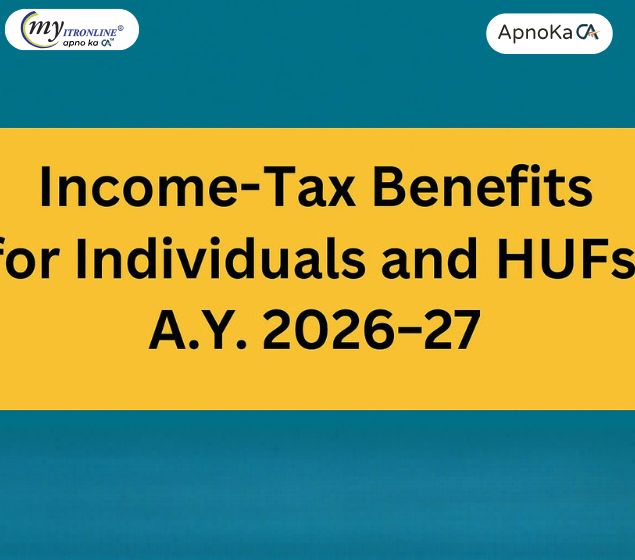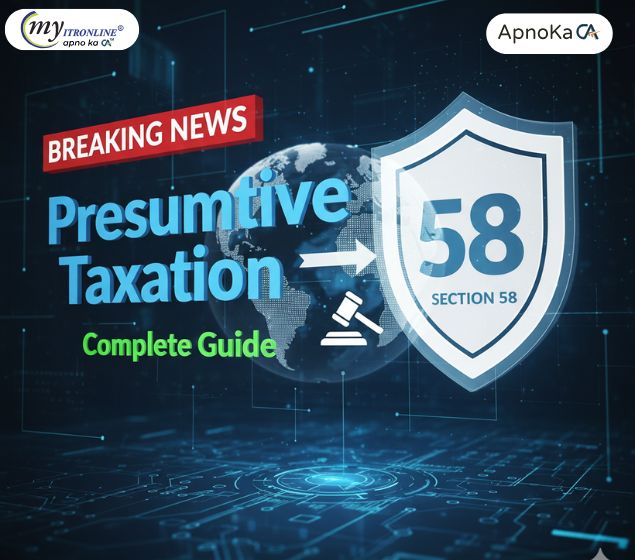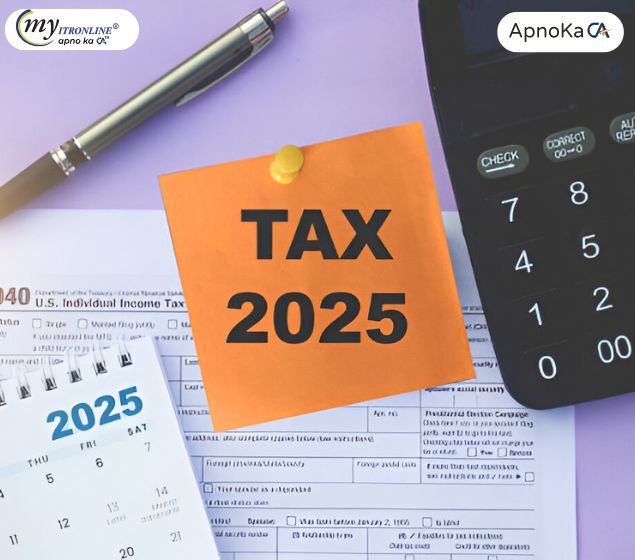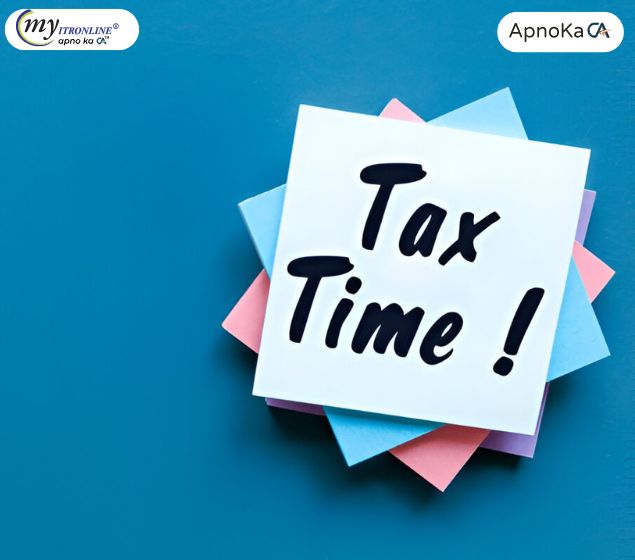# presumptivetaxation
12 posts in `presumptivetaxation` tag

Income Tax Benefits for Individuals and HUFs A.Y. 2026–27
A simplified guide to income tax benefits available to Individuals and Hindu Undivided Families (HUFs) for A.Y. 2026–27. Covers exemption limits, rebates, popular deductions, and simplified tax schemes to help taxpayers plan better and save legally.

Breaking: Presumptive Taxation Moves to Section 58 - Complete Guide
The Income Tax Act 2025 introduces Section 58, replacing Section 44AD for presumptive taxation of small businesses. This provision applies to eligible assessees with turnover up to ₹2-3 crore, offering simplified tax computation at 6% for digital transactions and 8% for other receipts, or actual profit—whichever is higher. The change promotes digital payments and reduces compliance burden for small businesses while maintaining revenue collection efficiency.
.jpg)
The 1,50,000 Mistake: Why Filing Under 44AD Instead of 44ADA Could Wreck Your Finances
This blog post addresses a common but serious error made by professionals and freelancers who incorrectly file their income tax returns under Section 44AD (for businesses) instead of the appropriate Section 44ADA (for professionals). It explains the fundamental differences between the two sections, how the Income Tax Department's AI systems detect this discrepancy through TDS mismatches and unusually low-profit declarations, and the severe consequences that follow, including mandatory audits and multiple financial penalties. The article concludes by offering a clear, step-by-step guide on what to do if you receive a notice for this mistake, emphasizing the importance of consulting a professional and taking prompt corrective action.
.jpg)
Tax Audit under 44AB: Revised 2025 Essentials
This guide explains the updated Guidance Note on Tax Audit under Section 44AB of the Income-tax Act, 1961, for the Assessment Year 2025-26 (Financial Year 2024-25). It clarifies who needs a tax audit, points out key changes in Form 3CD, including new clauses for digital transactions, MSME reporting, and buybacks. It also outlines the audit process, lists important due dates, and details the penalties for non-compliance. The guide offers best practices for taxpayers to help ensure smooth audits and strong tax compliance in India.
.jpg)
Small Business & Professional Taxes: A Guide to Sections 44AA, 44AB, 44AD, 44ADA for FY 2024-25
For small businesses and professionals in India, understanding Sections 44AA, 44AB, 44AD, and 44ADA of the Income Tax Act, 1961, is essential for smooth tax compliance. This guide explains how these sections apply for the Financial Year 2024-25 (Assessment Year 2025-26). It covers necessary bookkeeping, tax audit rules, and the simplified presumptive taxation schemes that can greatly lessen the compliance burden for qualified taxpayers.
.jpg)
Easy Guide: Which ITR Form (3 or 4) is Right for You, Freelancer?
This blog explains the key differences between ITR-3 and ITR-4, specifically for freelancers and consultants, outlining eligibility criteria and scenarios to help them choose the correct income tax return form.

Easy Tax Rules for Small Businesses & Professionals (FY 2024-25)
This comprehensive blog post provides a detailed overview of the presumptive taxation schemes under Sections 44AD and 44ADA of the Income Tax Act, 1961, for the Financial Year 2024-25 (Assessment Year 2025-26). It explains the eligibility criteria, benefits, and important considerations (like the 5-year rule) for small businesses and professionals. Additionally, it clarifies the requirements for maintaining books of accounts under Section 44AA and the applicability of tax audits under Section 44AB, including the enhanced turnover limits. The blog aims to simplify complex tax provisions, helping taxpayers make informed decisions for better compliance and tax planning.

Section 44ADA Explained: Presumptive Taxation Benefits for Self-Employed
This comprehensive guide delves into Section 44ADA of the Income Tax Act, 1961, offering a simplified "presumptive taxation" scheme for eligible self-employed professionals. Discover who qualifies, how to calculate your taxable income at a minimum of 50% of gross receipts, and the significant benefits like exemption from detailed bookkeeping and tax audits. Learn about crucial compliance aspects, including advance tax and the increased ₹75 Lakhs gross receipts limit, to make informed decisions for smarter tax planning and effortless compliance.
.jpg)
Sections 44AA to 44ADA: Who Needs to Maintain Books & Get Audited in A.Y. 2025-26?
For the fiscal year 2025–2026, this blog offers a comprehensive guide on Sections 44AA, 44AB, 44AD, and 44ADA of the Income Tax Act. Bookkeeping, presumptive taxation schemes, tax audit requirements, and compliance advice for professionals and corporations are all covered.
.jpg)
Key Updates on Presumptive Taxation in the Income Tax Bill 2025
Small enterprises, professionals, and independent contractors would all be impacted by the substantial changes to presumptive taxation brought about by the Income Tax Bill 2025, especially under Section 58. Important adjustments include clarifications on deductible costs, conformity with tax simplification objectives, and limitations on loss set-offs. This blog examines the ramifications of these modifications, how they affect taxpayers, and practical measures for financial planning and compliance.
.jpg)
How Section 44AD Helps Small Businesses Save Time and Money on Taxes
Section 44AD of the revenue Tax Act provides a presumptive taxation structure for small enterprises in India, enabling them to report revenue based on a specified proportion of sales. This blog discusses eligibility, benefits, income computation, and how it makes tax compliance easier by eliminating the need for comprehensive recordkeeping and tax audits.
.jpg)
Budget 2025 Brings 0% Tax for MSMEs Earning Up to 2 Crores
A ground-breaking tax reform was proposed in Budget 2025, offering companies with yearly sales up to 2 crores a 0% tax rate. This policy lessens the regulatory obligations for professionals, startups, and MSMEs by aligning with the presumptive taxation regime under Sections 44AD and 44ADA. For the benefit of small enterprises throughout India, the project seeks to increase entrepreneurship, simplify tax compliance, and encourage digital transactions.
